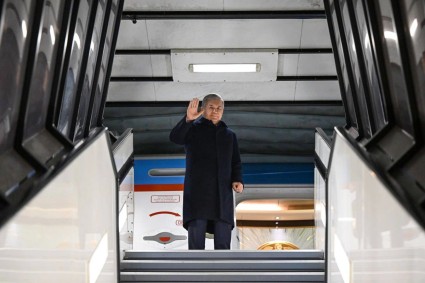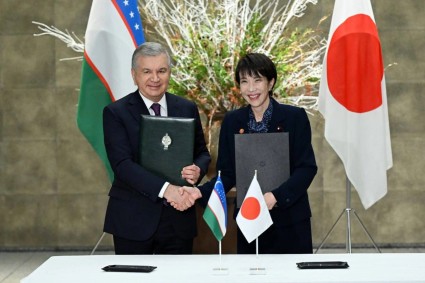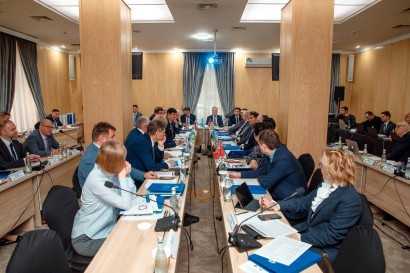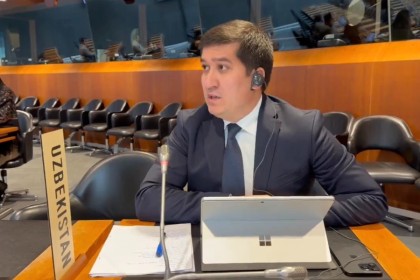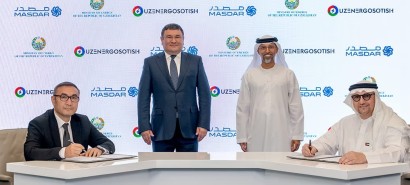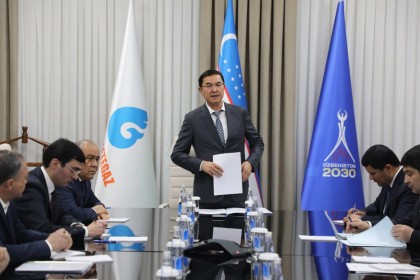Tokyo hosted the ninth meeting of foreign ministers of the Central Asia + Japan dialogue on Saturday, the Foreign Ministry said. The foreign ministers of Kazakhstan, Kyrgyzstan, Tajikistan, Turkmenistan, Uzbekistan and Japan explore the ways to strengthen cooperation between the countries of Central Asia and Japan in bilateral and multilateral formats in the transport connectivity, logistics, industrial cooperation, healthcare, education, and the green economy.
Foreign minister Vladimir Norov in his remarks said that Japan was a reliable partner in ensuring the sustainable development of Central Asia and made a significant contribution to the industrial and infrastructural modernization of the economies of the countries of the region.
He emphasized that in recent years a new political atmosphere had formed in Central Asia, many issues had been settled, economic cooperation had been expanded, and conditions for free human contacts had been provided. Uzbekistan’s alone with the countries of Central Asia from 2016 to 2021 increased by 2.5 times to $6.4 billion.
At the meeting, the parties put initiatives to improve the efficiency of interaction between the countries of Central Asia and Japan, the introduction of Japanese know-how and investments, the implementation of industrial cooperation projects, the attraction of grant funds from Japan in the digitalization of the transport system, sustainable energy supply, the promotion of a "green" agenda, the creation of medical institutions and enterprises.
They pointed to the presence of opportunities for stepping up cooperation in the areas of training for advanced training of personnel, migration, tourism, and culture.
In his opening remarks, the Japanese Minister Hayashi stated that the international community had been affected by Russia's agrresion against Ukraine in various aspects, including food and energy supplies, and that the impact is particularly significant in Central Asia, which has close historical and economic ties with Russia. In this context, Minister Hayashi stated that Japan would like to promote a new model of development with particular emphasis on "investment in people" and "quality of growth" in order to achieve sustainable development in Central Asia. The foreign ministers of the Central Asian countries expressed their interest in further strengthening cooperation with Japan towards sustainable development in their respective countries. They also expressed their interest in the possibility of creating a virtuous circle in which Central Asian human resources can contribute to the economic development of their home countries by utilizing their experience in Japan, including through the use of Japan's Specified Skilled Worker System and Technical Intern Training Program. In addition, they expressed their interest in cooperation in the field of decarbonization through the Joint Crediting Mechanism (JCM). In light of the difficult international situation, the participants also exchanged views on the future direction of cooperation regarding the "“Trans-Caspian International Transport Route”, a transportation route that does not pass through Russia, and agreed to hold a symposium on this issue in the first quarter of next year within the framework of the "Central Asia plus Japan" dialogue to further deepen discussions.
The sides also addressed the traditional risks of instability. The participants agreed on the need to respect the rights of all Afghans, including women and minorities, and to build an inclusive political system, and also expressed their appreciation for the 600 million yen grant announced last week to promote community empowerment and intra-regional cooperation to prevent violent extremism in five Central Asian countries, as well as for Japan's continued support in the areas of border management and livelihood improvement in border areas. They also expressed their appreciation for Japan's continued support in the areas of border management and livelihood improvement in border areas.
At the working lunch following the joint press conference, the Ministers exchanged views on Regional and International Situation. Minister Hayashi explained Japan's position on the international situation, including the response to Russia's aggression against Ukraine and the situation in East Asia, and frankly exchanged views on cooperation between Japan and Central Asia towards maintaining and strengthening a free and open international order based on the rule of law.
The Foreign Ministers of Japan and the five Central Asian countries then affirmed the importance of mutual cooperation as partners in maintaining and strengthening a free and open international order based on the rule of law, and agreed on the importance of upholding the UN Charter and other international laws such as the independence, sovereignty, and territorial integrity of all countries, and the peaceful settlement of international disputes. They also noted the importance of the non-proliferation regime and confirmed their intention to cooperate in the area of disarmament. Regarding North Korea, they reaffirmed their commitment to the complete denuclearization of North Korea in accordance with UN Security Council resolutions and the importance of resolving humanitarian issues of concern to the international community, including the abduction issue. After the meeting, a joint statement was issued by the foreign ministers of the six countries.
The next Foreign Ministers' meeting will take place in Kazakhstan.
This dialogue provoked a reaction from Russia. “We could not but pay attention to the goals that official Tokyo itself declares in relation to this event. Judging by the rhetoric of Japanese leaders at the stage of its preparation, they are not so much interested in mutually beneficial cooperation as, as stated, “rallying the world community, including the Central Asian countries, against Russia,” said Maria Zakharov, a spokeswoman to the Russian Foreign Ministry, in her Telegram channel on December 23.


